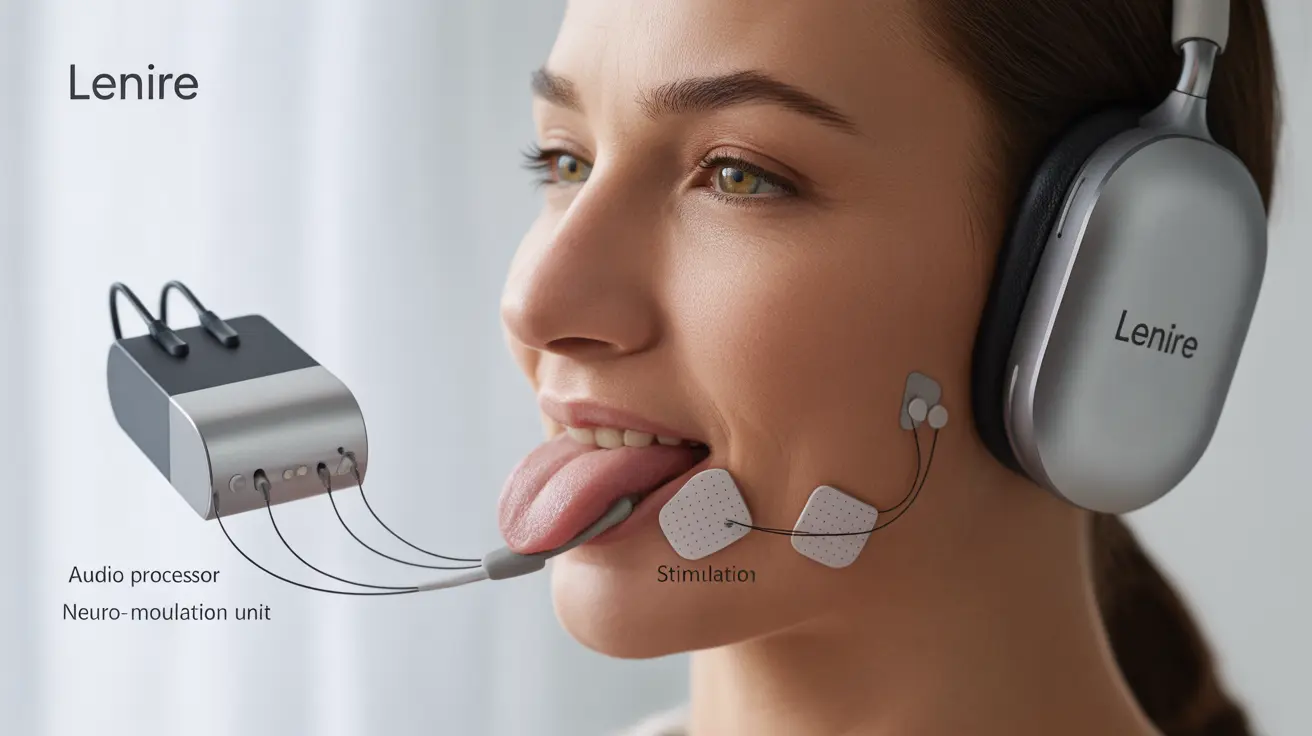Living with tinnitus can be challenging, but breakthrough treatments are offering new hope for those experiencing persistent ringing, buzzing, or whistling sounds in their ears. Recent innovations in tinnitus management, particularly the emergence of bimodal neuromodulation therapy, are transforming how we approach this common condition that affects millions of Americans.
In this comprehensive guide, we'll explore the newest FDA-approved treatments for tinnitus, focusing on innovative therapies that combine multiple approaches to provide relief. Understanding these advanced treatment options can help those suffering from tinnitus make informed decisions about their care.
Understanding Bimodal Neuromodulation: A Revolutionary Approach
Bimodal neuromodulation represents a significant advancement in tinnitus treatment. This innovative therapy combines two types of simultaneous stimulation: audio sounds delivered through headphones and mild electrical pulses to the tongue. The combination is designed to retrain the brain's neural pathways associated with tinnitus perception.
How Lenire Treatment Works
The Lenire device, a groundbreaking bimodal neuromodulation system, delivers precisely timed sounds through headphones while simultaneously providing gentle electrical stimulation to specific areas of the tongue. This dual-stimulus approach helps reorganize neural patterns in the brain, potentially reducing the perception of tinnitus sounds.
Treatment Protocol and Patient Experience
Treatment with bimodal neuromodulation typically follows a structured protocol. Patients use the device for 30-60 minutes daily, usually over a 12-week period. The therapy can be administered at home, making it convenient and accessible for most patients.
Monitoring and Adjustments
During the treatment period, healthcare providers regularly monitor progress and make necessary adjustments to the stimulation parameters. This personalized approach helps optimize results for each individual patient.
Clinical Evidence and Effectiveness
Research has shown promising results for bimodal neuromodulation therapy. Clinical trials have demonstrated significant reduction in tinnitus symptoms for many participants, with benefits often lasting several months after completing the treatment course.
Success Rates and Patient Outcomes
Studies indicate that approximately 80% of participants report improvement in their tinnitus symptoms after completing the full treatment protocol. Many patients experience sustained benefits for up to 12 months post-treatment.
Other Emerging Tinnitus Treatments
Beyond bimodal neuromodulation, several other innovative treatments are being developed and tested. These include advanced sound therapy techniques, cognitive behavioral therapy combined with digital applications, and new pharmaceutical approaches targeting specific neural pathways.
Safety Considerations and Side Effects
While bimodal neuromodulation is generally considered safe, patients should be aware of potential mild side effects. These may include temporary changes in tongue sensation or minor discomfort during stimulation. Most side effects are minimal and resolve quickly.
Frequently Asked Questions
What is the latest FDA-approved treatment for tinnitus and how does it work?
The Lenire device, a bimodal neuromodulation system, is the latest FDA-approved treatment for tinnitus. It works by simultaneously delivering sound through headphones and electrical stimulation to the tongue, helping to retrain the brain's neural patterns associated with tinnitus.
How effective is bimodal neuromodulation therapy like Lenire for reducing tinnitus symptoms?
Clinical studies show that approximately 80% of patients experience significant improvement in their tinnitus symptoms after completing the 12-week treatment protocol. Many patients report sustained benefits for up to 12 months after treatment.
What does a typical treatment session with the Lenire device involve and can it be used at home?
A typical session involves 30-60 minutes of daily use, combining audio sounds through headphones with gentle tongue stimulation. The device is designed for home use, making it convenient for patients to maintain their treatment schedule.
Are there any risks or side effects associated with the new bimodal stimulation treatment for tinnitus?
The treatment is generally safe with minimal side effects. Some patients may experience temporary changes in tongue sensation or mild discomfort during stimulation. These effects typically resolve quickly and don't interfere with daily activities.
What other emerging treatments for tinnitus are being researched besides bimodal neuromodulation?
Researchers are exploring various innovative approaches, including advanced sound therapy techniques, digital cognitive behavioral therapy applications, and new pharmaceutical treatments targeting specific neural pathways involved in tinnitus perception.




